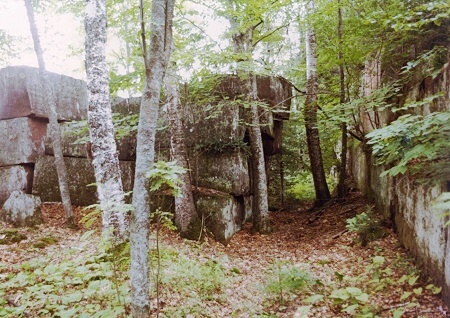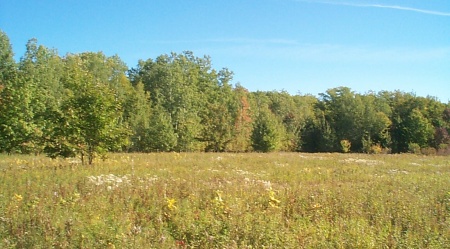Ghosts Of The Apostle Islands
Originally published
in
Lake Superior magazine
July, 2004
Received bronze award,
"Best Feature" category
Minnesota Magazine & Publications Association
“Are there any ghosts
out on the islands?”
That’s the question I hear most often in my job as Park Historian at
the Apostle Islands National Lakeshore. Sooner or later, whether I’m telling
visitors about the park’s superb collection of lighthouses, or sharing
stories of the islands’ farmers, loggers, and fishermen, The Question
will come up.
“Are there any places that are… haunted?”
It’s hard to answer, because I believe there are many haunted
places in the Apostle Islands… but maybe not in the way that the questioners
mean.
In years of research, I’ve still to come up with a single traditional
story featuring eerie apparitions or things-that-go-bump-in-the-night.
Yet there are plenty of spots on the islands that give me a chill every
time I visit them: places suffused with the spirits of the men and women
who lived, and sometimes lost, their lives on the Apostle Islands. These
sites are not hard to find; you just have to know what to look for.

Quarry
walls, Basswood Island
There’s the abandoned quarry on Basswood Island, for instance. It’s hard
for me to stand beneath its looming, moss-covered walls without thinking
of Mrs. McCrea, a quarryman’s wife who lost her life in a Christmas Eve
blizzard more than a century ago.
We don't know too much about this young mother - even her first name
has long been forgotten- but we know what happened on the day she died.
On the morning of December 24, 1893, Mrs. McCrea joined two of her neighbors
from the little quarry village to walk across the ice to Bayfield. The
goal of their trip: Christmas shopping. With her husband Dan at home to
mind their two small children, the excursion must have been a welcome
break in the island wife's winter routine.
At three that afternoon, their presents bought, the trio started back
toward Basswood. The three-mile trip should have gone quickly enough,
but the weather changed suddenly. A blinding blizzard enveloped the party,
and they lost all trace of their route. Pummeled by the storm, they wandered
for hours on the frozen lake.
As darkness fell, Dan McCrea grew worried. Leaving the children, he
took a lantern and compass, then set out onto the lake. He walked all
the way to Bayfield, hoping to find her waiting out the storm. Receiving
the unwelcome news that she'd left hours ago, he turned again toward the
island.
It was on the way back that McCrea found them. Cold and exhausted, the
party was barely a mile from safety. His wife was in the worst condition
of the three, too weak to walk. McCrea picked her up and began carrying
her homeward. Before they reached Basswood's shore, she died in his arms.
The quarry closed for good a few years after that sad Christmas, but
its stone walls bear witness to the work of quarrymen like Dan McCrea.
Nearby, keen observers will also find faint traces of the cottages where
their wives and children lived.

McCloud-Brigham
Farm site
About two miles up the trail from the quarry is another place where I
often
look for Basswood Island’s ghosts. Here, the forest opens into a
grassy field, edged with crumbling stone walls that extend from nowhere
to nowhere. At one end of the field is an ancient apple orchard; at the
other, the jumbled remains of several wooden buildings.
This deserted farmstead had several residents over the years; among them
was the eccentric recluse, Joseph McCloud. “Judge McCloud,” people called
him, because he had been a prominent jurist in Wisconsin’s early statehood
days: district attorney, then county judge.
Perhaps his experiences in the legal system soured him on mankind, because
around 1870, Judge McCloud retired from public life and built a cabin
on the island. His passion, however, was not in farming, but in music.
He brought a small pump organ to the island, and when rare visitors stopped
by, he would insist on playing his latest compositions for their bemused
appreciation.
Judge McCloud died in 1900, and the farm was totally abandoned by 1923.
Nonetheless, the site is easy to recognize, and tasty apples still grow
on the untended trees. I haven’t heard organ music yet, but I keep listening.
Continue to Part Two
|